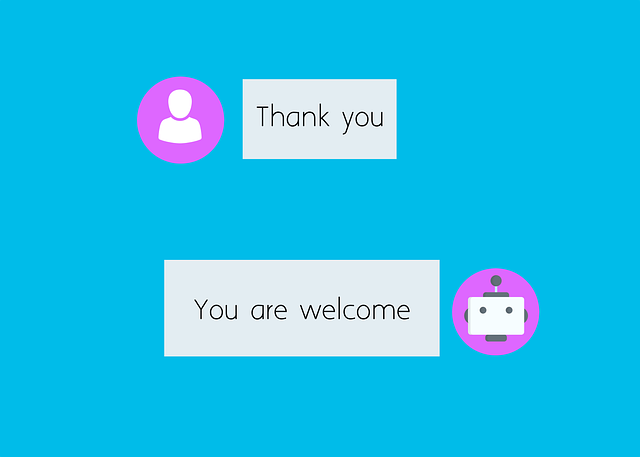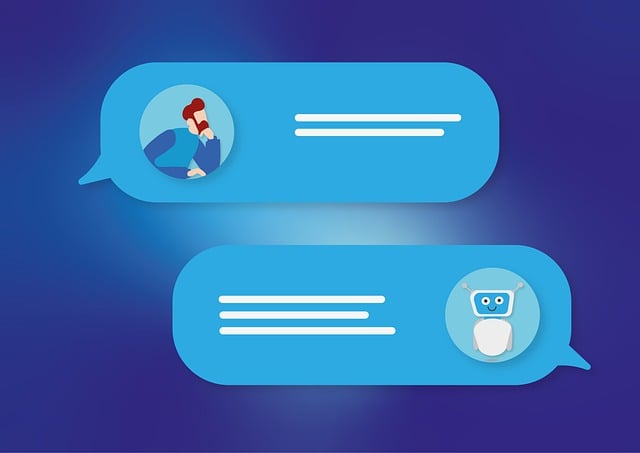Chatbots, powered by AI, transform industries through 24/7 support, personalized recommendations, and task automation. Utilizing natural language processing and machine learning, they mimic human conversations, process vast data, and continually adapt. From retail product assistance to healthcare virtual assistants, chatbots enhance user experiences by streamlining processes and offering convenient, accessible interactions. As AI evolves, chatbots integrate into diverse sectors, revolutionizing technology interactions with sophisticated conversational abilities and tailored solutions.
“Welcome to the era of conversational AI! This article explores the dynamic world of chatbots, their impact on various industries, and the future of human-AI interaction. We’ll demystify these intelligent assistants, revealing how they’re revolutionizing customer service, healthcare, education, and more. Discover the transformative power of chatbots and gain insights into the exciting possibilities that lie ahead in the ever-evolving landscape of artificial intelligence.”
- What is a Chatbot?
- How Chatbots are Transforming Industries
- The Future of Chatbots and AI Interaction
What is a chatbot?

A chatbot is an artificial intelligence (AI) software application designed to simulate human conversations through text or voice interactions. It uses natural language processing and machine learning algorithms to understand user inputs, generate relevant responses, and learn from each interaction. Chatbots can be as simple as rule-based systems that follow pre-defined scripts or complex AI models capable of handling a wide range of tasks.
These virtual assistants are becoming increasingly prevalent across various industries, offering 24/7 customer support, answering frequently asked questions, and even providing personalized recommendations. With their ability to process vast amounts of data and adapt over time, chatbots enhance user experiences by streamlining communication and automating repetitive tasks, making them a valuable tool in today’s digital landscape.
How Chatbots are Transforming Industries

Chatbots have emerged as a powerful tool, revolutionizing industries across the globe. From healthcare to finance and customer service, chatbots are leaving their mark by streamlining processes and enhancing user experiences. Their ability to process vast amounts of data and provide personalized responses in real-time has made them an indispensable asset for businesses.
In the retail sector, for instance, chatbots power online shopping experiences, offering product recommendations and assisting customers with queries. In healthcare, they act as virtual assistants, scheduling appointments, providing basic medical advice, and even offering mental health support. The financial industry benefits from automated chatbot services that assist with banking transactions, investment advice, and 24/7 customer support. This transformation is not just about efficiency; it’s about creating more accessible, convenient, and humanized interactions between businesses and their customers.
The Future of Chatbots and AI Interaction

The future of chatbots holds immense potential as artificial intelligence continues to evolve. Chatbots are becoming increasingly sophisticated, able to engage in more natural and contextual conversations with users. With advancements in natural language processing (NLP), these digital assistants can understand nuances, interpret user intent, and provide personalized responses—blurring the line between human interaction and machine assistance.
As chatbots integrate into our daily lives, from customer service to healthcare, they are transforming how we interact with technology. The development of more human-like AI interactions will foster a sense of convenience, efficiency, and accessibility. We can expect chatbots to anticipate user needs, offer tailored solutions, and continuously learn from each interaction, shaping a future where human-AI collaboration becomes the norm rather than the exception.
Chatbots have already made significant waves across various industries, streamlining processes and enhancing customer experiences. As artificial intelligence continues to evolve, the future of chatbot interaction promises even greater personalization, understanding, and efficiency. By leveraging these advanced technologies, businesses can further revolutionize how they engage with their audiences, creating more meaningful connections and opening new avenues for growth.
